Social media is a strange place most of the time, but the strangeness gets taken up a notch when it comes to Dallas Cowboys QB Dak Prescott.
There are two types of people online. Those who strongly support him, and those who do anything and everything to tear him down.
Despite all of the good things Prescott has done in his career, he is only graded on his failures. Some failures are team efforts, but Dak takes the brunt of those as well.
NFL Gameday shared an interesting stat recently that will throw the Dak resisters into an unmitigated fury.
If you are not a fan of Dak Prescott, turn away. You aren’t going to like this graphic.

Prescott has led the Cowboys’ offense to heights only accomplished by two quarterbacks already in the NFL Hall of Fame, and another two who are locks for it.
Today we will be comparing Dak’s achievement with the other four quarterbacks on this list based on their supporting cast.
First, let’s look at Dak’s numbers in the current three year span.
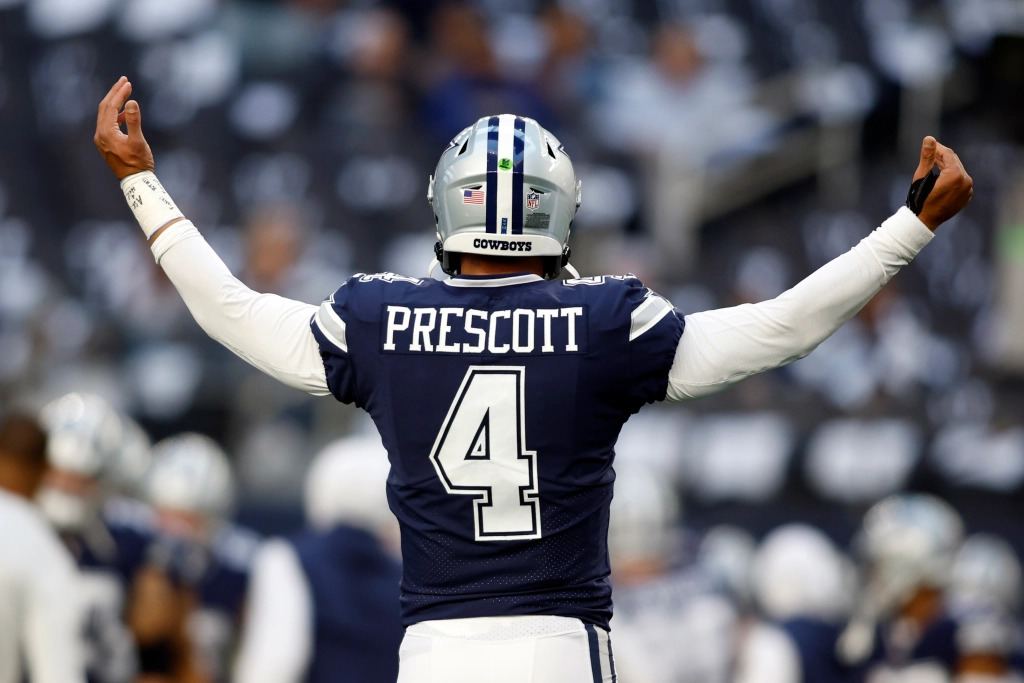
Dak Prescott 2020-22
Points per game average: 31.3
Offensive Coordinator: Kellen Moore
Key Contributors: Ezekiel Elliott, Tony Pollard, Amari Cooper, CeeDee Lamb, Michael Gallup, Noah Brown, Dalton Schultz
Prescott and the Cowboys’ offense have had quite a run since Dak was drafted in 2016.
It really got kicked into gear midway through the 2018 season after trading for Amari Cooper.
Cowboys’ brass recognized that the offense lacked weapons for Prescott after starting the season 3-4 headed into the bye week.
Dallas went 7-2 after the trade for Cooper. Dak won the first playoff game of his career at home versus Seattle before losing in the Divisional round at the Rams.
Prescott only started five games in the 2020 season before heading to injured reserve after suffering a compound fracture on his ankle versus the New York Giants.
Prior to that unfortunate scramble, Dak was in the early MVP conversation.
In the four full games to start the season, the Cowboys averaged 31.5 points per game behind Prescott.
He surpassed the 450 yard mark in three consecutive games, and had a total of 13 touchdowns to just two interceptions.
The 2021 season was arguably the best season of Dak’s career, even though it ended with a Wildcard loss to the San Francisco 49ers.
Armed with weapons Amari Cooper, CeeDee Lamb, Michael Gallup, and Dalton Schultz as pass catchers, Prescott was impressive.
He threw for 4,449 yards at a 68.8% completion rate with a 37:10 touchdown to interception ratio.
In 2022, Prescott faced much adversity. A loss to Tampa Bay in the opener had injury added to insult in the form of a broken finger that sidelined him for five games.
Upon his return, it appeared the finger injury affected him greatly. He finished the 2022 season with a whopping 15 interceptions in just 12 games played.
Despite the uncharacteristic turnover problem, Prescott and Cowboys sent Tom Brady into retirement by jumping out to a 31-0 lead in the Wildcard round.
The Boogeymen by the Bay again squashed the Cowboys’ hopes of a sixth Lombardi Trophy by ousting Dallas in Levi’s Stadium in the Divisional round.
Prescott and the Cowboys’ offense had an incredible three year stretch, but only have one Wildcard win to show for it.

Drew Brees 2018-20
Points per game average: 32.5
Offensive Coordinator: Sean Payton/Pete Carmichael
Key Contributors: Mark Ingram, Alvin Kamara, Latavius Murray, Michael Thomas, Emmanuel Sanders, Jared Cook
Drew Brees is an absolute lock for the NFL Hall of Fame.
With four 5,000 yard passing seasons and 571 touchdown passes, Brees was lighting up defenses his entire career.
His last three years in the league could be the best three seasons of his storied career.
The Texas native set personal records for completion percentage (74.4) and QB Rating (116.3) in this three year span.
Led by weapons Alvin Kamara and Michael Thomas in 2018, Brees got closer to the Super Bowl as any other season since his 2009 championship run.
Unfortunately, officiating kept him from securing a berth in the big game.
An absolutely egregious no-call on a defensive pass interference by the Rams’ defense sent Brees and the Saints back into the Superdome locker room with their heads hanging.
Injuries limited Brees to only 23 games played in 2019 and 2020. However, the offense still soared with him under center.
Led by Michael Thomas’ single season NFL record 149 receptions, the Saints cruised to a 13-3 record, but once again suffered a loss that was out of Brees’ hands.
As a sports fan, you must be familiar with the Minneapolis Miracle.
The Saints defense only needed to stop a desperation drive by QB Case Keenum and the Vikings to move on to the Divisional round.
Stefon Diggs ran a corner route and Keenum hit him right in the numbers.
Saints rookie safety Marcus Williams whiffed on the tackle, and the rest is history.
Brees and New Orleans cruised to another NFC South division win in 2020, but were ousted by another legend quarterbacking the Tampa Bay Buccaneers.
Tom Brady sent Brees into retirement with yet another crushing playoff loss in the Divisional round.
The three year run for Brees and the Saints’ offense resulted in two playoff wins, and three gut-wrenching losses.
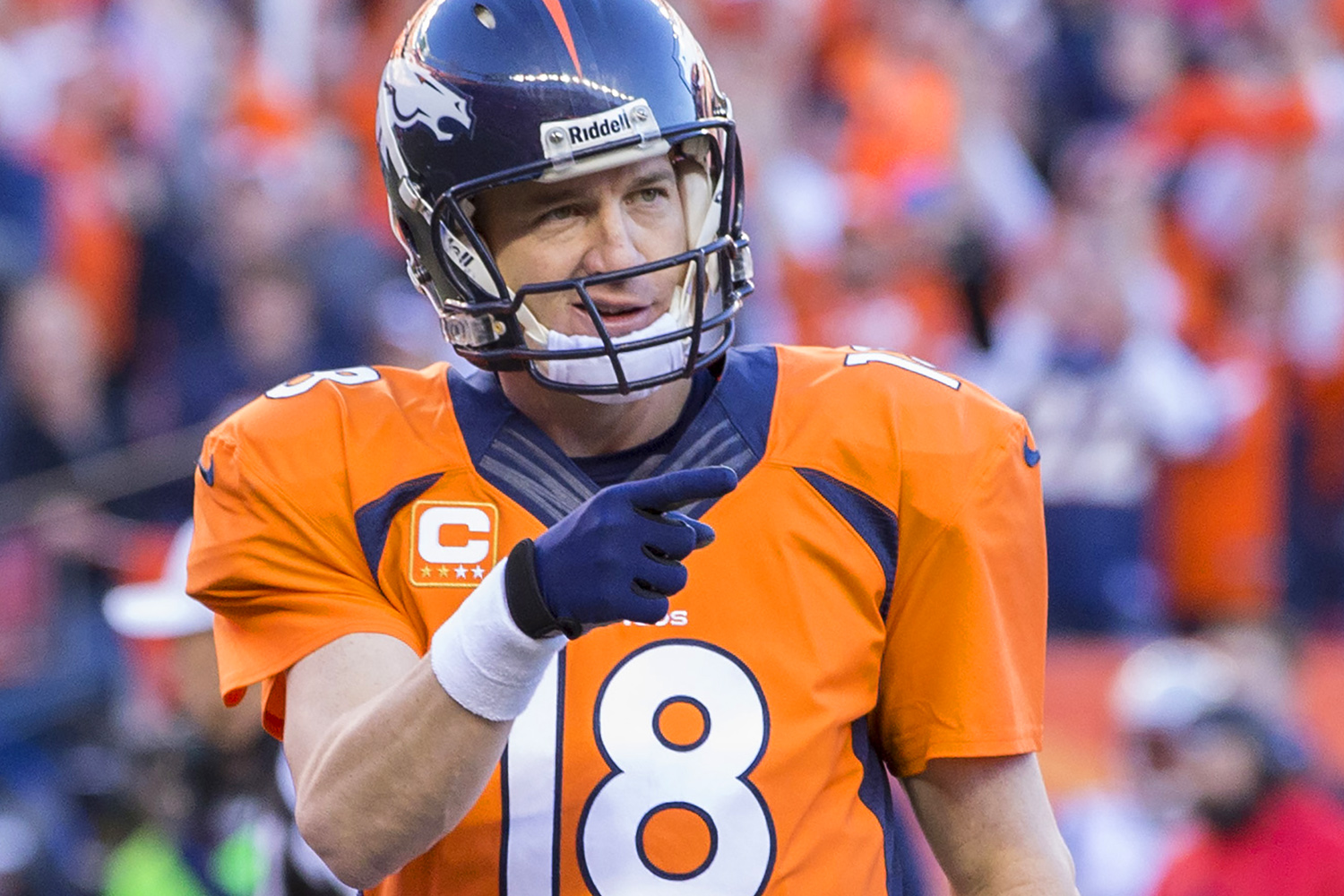
Peyton Manning 2012-14
Points per game average: 32.7
Offensive Coordinator: Mike McCoy, Adam Gase
Key Contributors: Willis McGahee, Knowshon Moreno, Montee Ball, CJ Anderson, Ronnie Hillman, Demaryius Thomas, Eric Decker, Brandon Stokley, Wes Welker, Emmanuel Sanders, Jacob Tamme, Julius Thomas
Personally, I think Peyton Manning is the best quarterback to ever play the game.
He may not have the team accolades to match up with other quarterbacks, but he essentially served as his own offensive coordinator for the majority of his seasons.
Manning showed he had more than enough left in the tank after the neck injury that prompted the Indianapolis Colts to release him after 13 seasons.
John Elway and the Denver Broncos were happy to scoop him up, and it paid immediate dividends.
The 2012 season and Manning era in Denver started off slow, with losses in three of the first five games.
Manning and the offense kicked it into gear after that, winning 11 straight games to finish the regular season.
Their season ended in the Divisional round to the eventual Super Bowl Champion Baltimore Ravens.
Don’t fault Manning, who led the Broncos offense to 35 points.
The 2012 season proved to be a warmup for the record-setting 2013 campaign.
The addition of Wes Welker to an already potent stable of weapons pushed the Broncos to the upper echelon of the NFL.
Welker created a deadly trio of wide receivers that also included Eric Decker and the late Demaryius Thomas to go along with upstart tight end Julius Thomas.
Manning set NFL records (since eclipsed) for passing yards (5,477) and passing touchdowns (55) to lead the Broncos to the Super Bowl.
The Super Bowl was a disaster, however. The historic offense was held to only eight points by one of the better defenses in NFL history.
Following the Super Bowl defeat, the Broncos returned to the playoffs, only to be upset by Andrew Luck and the Colts.
The historic three year run resulted in two playoff wins and an embarrassing loss in the Super Bowl.
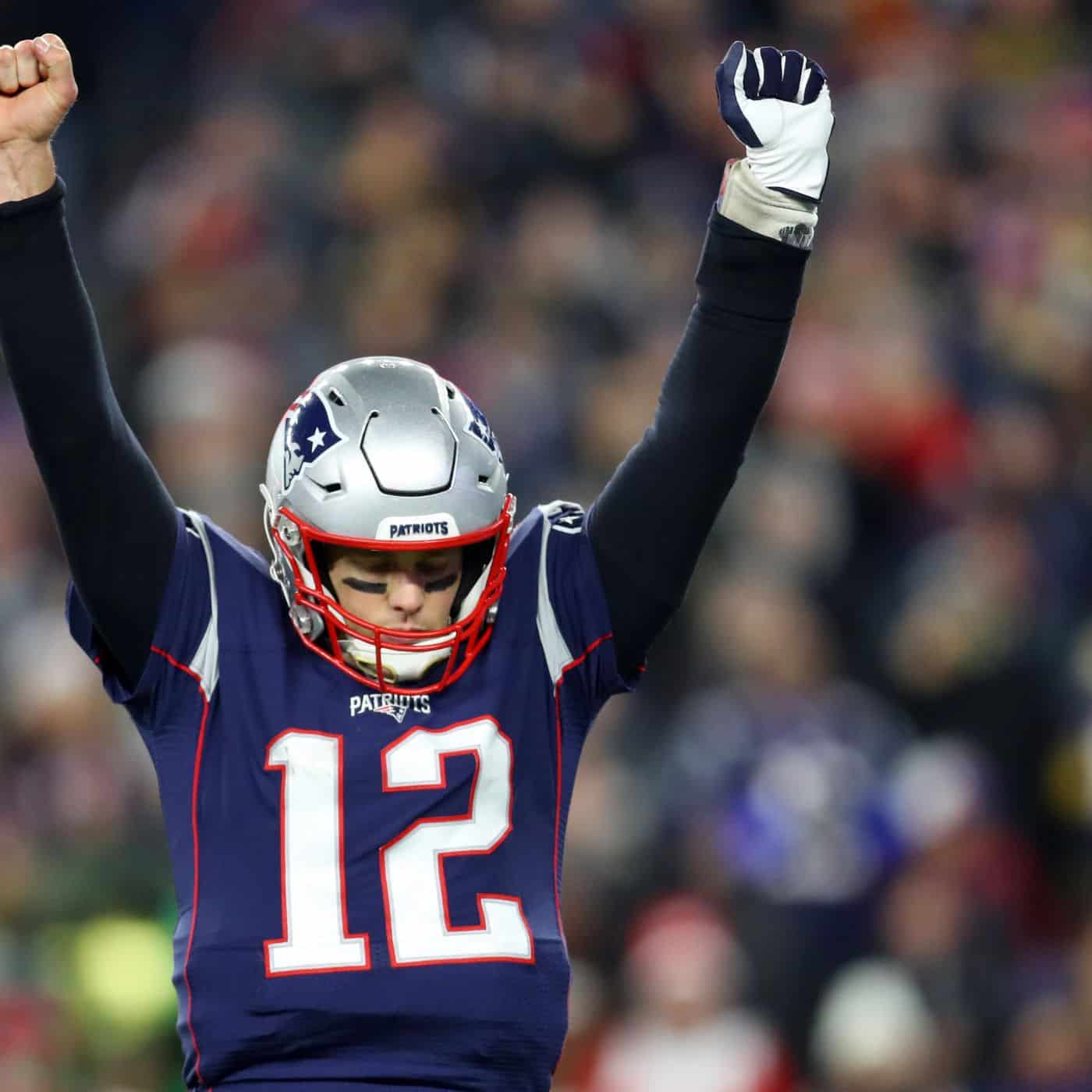
Tom Brady 2010-12
Points per game average: 33.1
Offensive Coordinator: Bill Belichick, Bill O’Brien, Josh McDaniels
Key Contributors: Benjarvus Green-Ellis, Danny Woodhead, Stevan Ridley, Wes Welker, Deion Branch, Brandon Lloyd, Rob Gronkowski, Aaron Hernandez
Tom Brady’s GOAT status is often credited to incredible defenses and coaching around him his entire career.
The Patriots’ three year stretch as one of the league’s top offenses disputes that narrative.
Looking at the key contributors for that span of time, no players jump out as game-changers besides Rob Gronkowski and Wes Welker.
In 2010, Brady led New England to a league best 14-2 record, but was upset in the Divisional round by the AFC East rival Jets.
Fueled by that disappointment, Brady returned in 2011 with a then career high 5,235 yards passing to lead the Patriots all the way to the Super Bowl.
The 2011 season featured a trio of Welker and young tight ends Gronkowski and the late Aaron Hernandez. They caught 122, 90, and 79 passes respectively.
For the second time in his career, Brady lost a Super Bowl he was favored to win at the hands of Eli Manning and the New York Giants.
Returning at 35 years old for the 2012 season, Brady nearly eclipsed 5,000 yards passing for the second year in a row, finishing with a 12-4 record.
The Super Bowl would again evade him, as the Patriots’ offense stalled in the Divisional round with a 24-13 loss to the Baltimore Ravens.
Brady’s historical three year run resulted in three playoff wins and a Super Bowl loss.

Kurt Warner 1999-01
Points per game average: 33.2
Offensive Coordinator: Mike Martz, Bobby Jackson
Key Contributors: Marshall Faulk, Trung Canidate, Isaac Bruce, Torry Holt, Az-Zahir Hakim
Offensive Coordinator Mike Martz and unlikely hero Kurt Warner are the authors of the famed Greatest Show on Turf.
In an absolutely incredible three year offensive run, Warner and the Rams had one of the most exciting offenses in NFL history.
Thrust into the starting role after a preseason injury to starting QB Trent Green in 1999, Warner made the most of his opportunity.
His improbable rise from grocery store employee to starting quarterback in the NFL ended with an MVP season and Super Bowl win.
No offense was faster or more elusive than the Rams, featuring RB Marshall Faulk and wide receivers Isaac Bruce and Torry Holt.
Warner missed five games in 2000 with injury, but the offense was even more electric than the previous season.
He threw for the most yards per game (312.7) and yards per completion (14.7) in his career.
Heartbreak ensued when the offense was shut down in a 10-7 Divisional round loss to the Saints.
Looking to bounce back from a 2000 season that was cut short, the 2001 Rams team was special.
Warner set career highs in almost every passing metric on his way to his second MVP season in three years.
The Rams reached the Super Bowl after a 14-2 record, only to be upset by the next great quarterback to see an NFL field, Tom Brady.
Warner’s record-setting three year run ended with five playoff wins, a Super Bowl win, and a Super Bowl loss.
Of this list, the only quarterback to actually win a Super Bowl in their three year top offensive window was Kurt Warner.
Maybe having the highest scoring offense isn’t the recipe for the ultimate success.
I’ll let you debate that. In the meantime, I will continue to enjoy seeing Dak Prescott take the Cowboys’ offense to new and exciting heights.



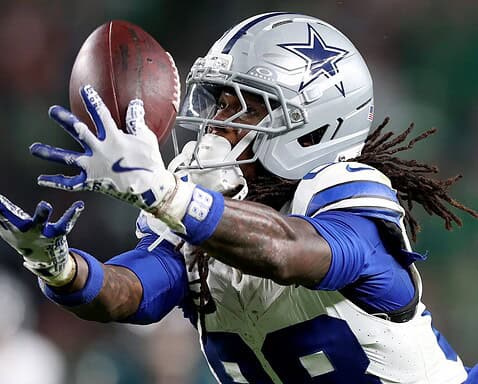

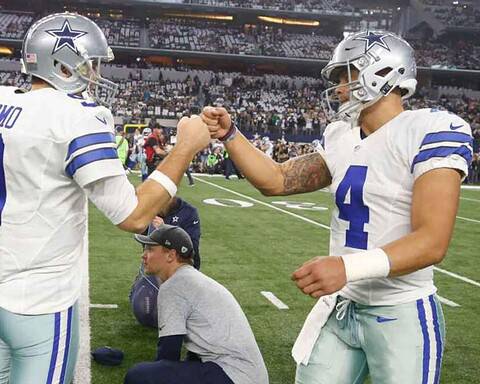
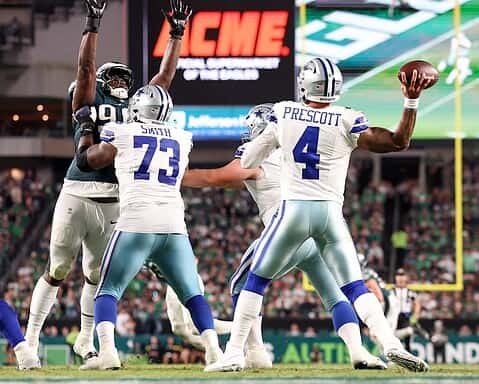
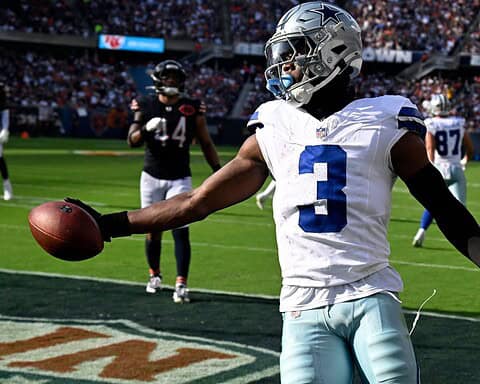
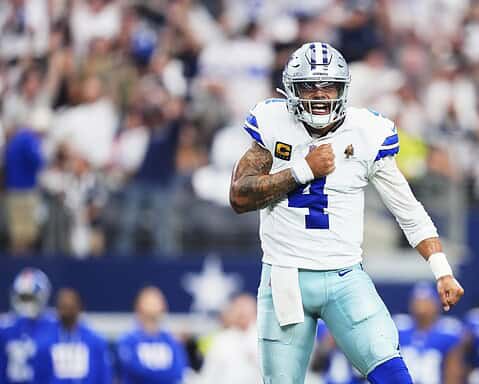
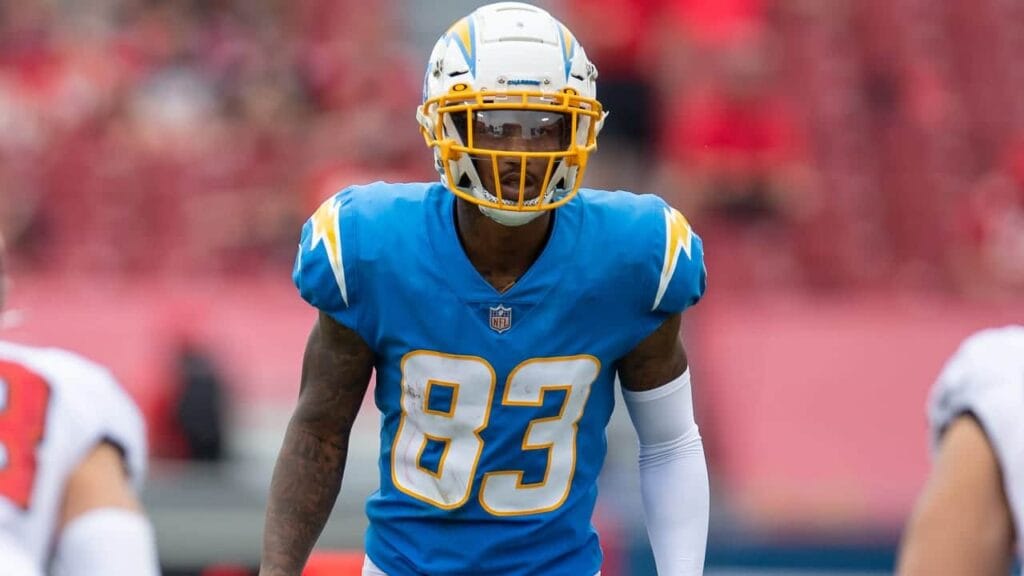
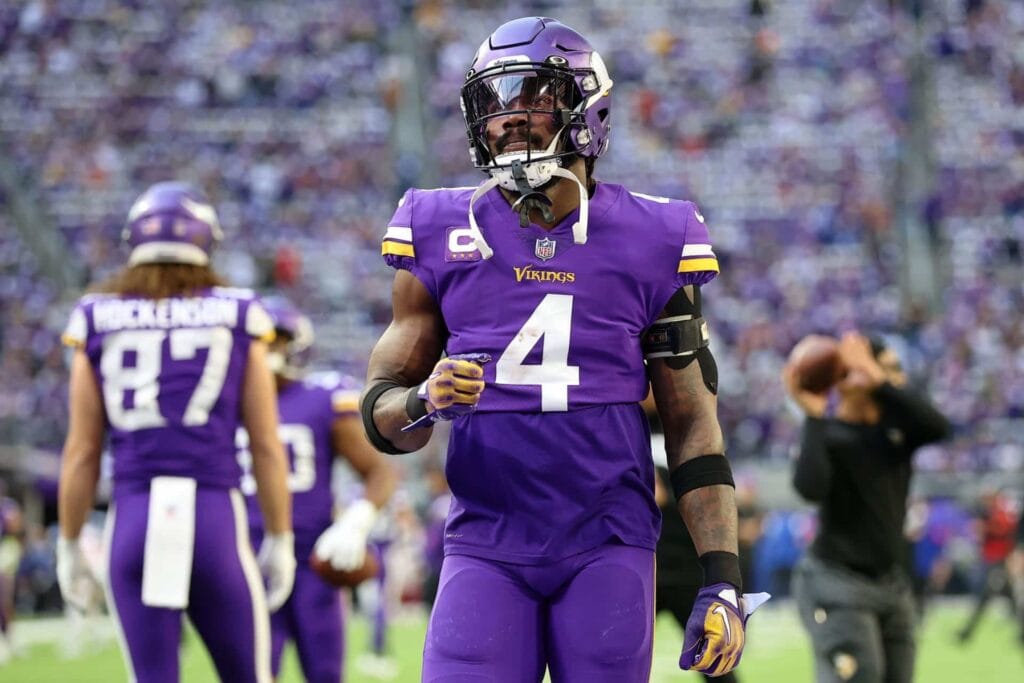
The stat that counts is Super Bowl wins.
Don Kiolbassa and? What about the rest of the sorry ass teams that don’t make it to the Super Bowl? Where’s everyone’s hate towards them
Eddie Gonzalez I have been a Cowboys fan since the sixties. I am just saying Dak is not an elite quarterback and shouldn’t be considered one unless he at least gets to a Super Bowl.
Don Kiolbassa that is a team stat fool Dallas is 18-34 when they DON’T score 30 points since 2019 That’s why not been to a SB
Don Kiolbassa since 2019 Dallas is 18-34 when they DON’T score 30 points QB is NOT the problem
Don Kiolbassa They’re a top 5 most productive offense since 2019 when Dak Prescott plays. This is with an OL who was 28th in Pass Block Win Rate in 2022 and Michael Gallup/Noah Brown ranking bottom 25 in average separation among 109 qualifying WR’s.Jan 28, 2023
Mike Verebely daks had good years? When
Ryan Hunter check this. .go look at his annual career stats …I don’t need to do work for you .
Ryan Hunter almost every year…wtf…” He won’t name a year drrrrr “
Ryan Hunter no…the topic is years dummy
Ryan Hunter that’s bc you came here crying about him not having any good years…I said almost all of them…name some that weren’t…stay on topic…
Ryan Hunter what ???
Ryan Hunter he’s had one season without him…LMFAO…and he put up good numbers without him plus the Cowboys had a winning season without him …Cleveland has never won a Superbowl…never been to a Superbowl… As a matter of FACT…they are where qbs get drafted , go to die…browns wasted one high QB draft pick after another…you can’t fxxk with me…your team is a losing franchise. while I seen 4 of the 5 Cowboys Superbowl win ….you saw 57 years of Choking… understand this…media might make you think you can talk trash but YOU CAN’T… Steelers and Patriots fans CAN…that’s it chump
Ryan Hunter what ??? Dumbasc
Mike Verebely daks had 3 seasons without cooper slow one
Mike Verebely are you really this slow?
Don, how many Super Bowl wind did Dan Marino have, but he is a Hall of Fame QB and considered to be one of the greatest to ever play the game. How many Super Bowl wins did Jim Kelly have, another Hall of Fame QB. Should I continue???
Super Bowl wins. Hell. Right now he’s not even worthy to hold Danny White’s dirty jock, much more Roger’s or Troy’s. At least Danny reached Championship games. This CLOWN can’t make it out of a division round. Plus, Middle of the pack dak
will never be in anything, serving up TURNOVERS.dak SUCKS as a qb. He’s an updated version of tony ” OH NO! ” Who also has NO CHANCE to be in the Hall of Fame.
Excellent article. What is impressive for Dak in 2022 is he took the offense that was scoring 15 points a game with Rush at QB and more than doubled that after Dak returned. The offense itself was bad in 2022 as it was in 3rd and 7 or more 43% of 3rd downs and so it was Dak completing long 3rd downs that was the success.
Hey siempre, really 15 points a game?
Cowboys 20 – Super Bowl Bengals 17
Cowboys 23 – Giants16
Cowboys 25 – Wash 10
Cowboys 22 – Super Bowl Rams 10
Cowboys 17 – Eagles 26
4-1 and kept the team in the hunt, after DP scored a brutal 3 POINTS in the opener.
And DP wasn’t part of the 1st and 2nd downs to get to the third and longs?
BOGUS graphic in DP’s case. He played just 5 games in 2020, and somehow still gets credit for this silly three-year consecutive streak. And BTW, he LOST 3 out of those 5 games.
The hype machine continues with this obscure cherry-picked stat. He is NOT ELITE/Super Bowl talent and if they stupidly extend him get ready fans for more of this same. YOUNGER BETTER QBs on other teams are passing the Cowboys by and winning Super Bowls with them. They should have drafted some REAL competition for him THIS YEAR at the latest.
BTW, what happened to this 30 PPG BS in the 2022 division playoff game where he put up 12 points.
12 POINTS!!!
Keep trying to get to the top, will be there in spirit
Dakass is no Elite.
Jeff Mcknight so right!
Jeff Mcknight you got that shit right with his no quarterbacking ASS
Did they put him in another quarterback group
Is this a bad joke
Raul Moreno SORRY that actual facts terrify you …..tissue?
No Superbowls no good
Rick Austin so Dan Marino & Johnny Unitas are bums Clown
Rick Austin that means that all but a few current QBs are “no good”. Only Mahomes, Hurts, Burrow, Stafford, Jimmy G, and Rodgers (from 12 years ago) are good. Got it.
Both Marino and Unitas made the Super bowl no one mentioned having to win it
This must be what they mean by “fake it till you make it” …except Dak will never make it. It’s just his agent cherry picking numbers to make him look good
Daniel Pettie, if Dak were to stop suddenly, your nose would suddenly become very brown and broken.
Stop calling him elite. Elite qbs do not choke in the playoffs. This clown does not have it. Go birds
Say what you want in this article! But until he wins the big game this stay means nothing!
John Burdsall you grasp the SB is a TEAM AWARD right they don’t award the SB to a player fool. Dallas is 18-34 since 2019 when they DON’T score 30 points. QB is not the problem
He is a born loser, he will never be anything but a backup quarterback, maybe.
Pad the stats against weak and undercoached teams and struggle against top defenses=elite. Got it
Chris Williams clown last season Dak was 4-1 vs teams with winning records and would have been 5-0 if DEFENSE didn’t blow a 17 point lead. Your hate is only outdone by your stupidity
I call BULLSHIT
Dak sucks Dallas will never win anything. And Jerry is giving him a new contract it going to be a long long time
Slide on a game winning drive with no timeouts. Lol
Doug Hoekstra Ran and ran and ran the clock out. Game awareness skill isn’t likely to increase starting in Year 8.
Richard Naylor guess both you idiots missed the ref not getting out of the way so they could spike the ball and have a chance to win . Plus fools that was a McCARTHY CALL
Doug Mackenzie Funny, game aware qbs like Brady and Mahomes never seem to need a ref to get out of the way to have enough time left. And there were no refs to try to blame it on the last time San Francisco, with a 7th round rookie qb, beat him in the playoffs.
Doug MackenzieDoug MackenzieThat’s typical. The fans make just as many excuses as the team does!!! LOL…
Kenneth Barrick not a fan lol
Doug Mackenzie ok keyboard warrior cool your jets
Richard Naylor FOOL the Niners defense and offensive line beat Dallas both times, but keep showing you are just a hater who can’t spell football without mommy’s help
Doug Mackenzie Name a qb who started having playoff success in Year 8 of his career. Dak, nice qb. Fool’s gold in Super Bowl team building.
Richard Naylor Clown NONE of Rodgers, Brees or Peyton Manning won a SB BEFORE year 9 . When did the SB become an individual award? Oh and when you only win 30% of games unless SCORE 30 points and the QB avgs 30 points a game for 3 straight seasons QB IS NOT the problem. Your hate is only outdone by your total lack of football knowledge.Go post about bowling
Doug Mackenzie Your excuse making for Jerry claiming to be building a dominant playoff team every year, and failing for 27 years, while not doing the one thing all top playoff teams do, drafting a qb high, since Quincy Carter shows who lacks football knowledge, or is just happy being around fourth worst in playoff wins since Jerry took over as GM full time. Carry on with the excuse making. Jerry and his banker love you for it.
Richard Naylor fool the Best QB in Cowboys history was a 12th round pick and where was Brady picked? TIME to stop digging fool
Doug Mackenzie Staubach was drafted low because he had years of military commitment. Brady showed he could lift teams early in his career. And he and Warner are the only two qbs ti have not been drafted high to have sustained Super Bowl sucess in all of Super Bowl history. Really bad odds Jerry and Dak supporters are playing.
Richard Naylor Here is why Dallas hasn’t been to SB since Dak drafted and also for the 20 years before he was drafted. since 2018 when Dallas DOESN’T score 30 points they are 12-26. When you only win 30% of games where don’t score 30 points God could be your QB and not make SB. Instead of playing Dak blame Quinn
Richard Naylor guess you missed Hosteller & Foles both have a ring you consider them great> Or maybe Flacco or Trent Dilfer? again fool football is a TEAM sport
Who in their right minds think those guys were great playoff qbs? One lucky run does not equate to being a great playoff qb. Keep trying. Outside of the two I mentioned in the super bowl era, the qbs that have sustained playoff success were ALL drafted high. Jerry stopped doing that 20 years ago. His only success? Aikman. First overall in 1989. Keep loving Jerry’s mediocre at best in the playoff qbs and he’ll keep delivering them. and near worst in league playoff success for the next 27 years….
Doug Mackenzie Sounds like the excuses made for Romo for a decade. It’s not him, it’s EVERYBODY else. Look at the team turnarounds in the AFC when they drafted young, good qbs high.
Richard Naylor yeah and Exactly 1 has won a SB. Jets dumped their and signed old tired Rodgers. Baker is on his 3rd team, Jhonny football is flipping burgers. Another Top Pick is 3rd string on Niners, NOT AFC but Rams dumped Goff and Niners already said that that 7th round pick is their starter over top 3 pick they traded multiple draft choices for, oh and Wentz is out of NFL,. You grasp that once Aikman lost top 5 defense he won 1 playoff game in last 5 years. Rodgers didn’t win until year 9 the only season GB had a top defense and hasn’t won since. Brees didn’t win til year 9 the Bountygate season and didn’t win after that, Peyton Manning didn’t win til year 9. Oh and more stats about not Romo’s fault well, in early 2000’s Romo had worst winning record in NFL history when scoring 30 points, and in Aikman’s 1st SB win the defense forced 9 turnovers, the defense never forced 9 turnovers total in either Romo’s or Dak’s 6 playoff games. In Roger’s 2 SB wins first defense held Miami to a SB RECORD 3 points, in his 2nd defense held Denver to a SB record 35 passing yds and in Aikman’s last DB picked 2 passes setting up easy TDs and won MVP. Name 1 game just one where defense did any of that in a playoff game for Romo or Dak? Again go buy football for dummies or simply post about bowling maybe you actually know something about that and sorry that actual facts terrify you, bet you think Donny is innocent too
Doug Mackenzie A lot of words to ignore the reality. All the up and coming playoff teams have top drafted qbs. Rodgers, you mention, top drafted old qb. Manning, a top drafted qb, got there and had much playoff success before Year 8. And, you still haven’t come up with a low drafted qb that started delivering real playoff success STARTING in Year 8. Doesn’t happen, ever. So, you and Jerry are betting on Dak being the first one in NFL history to do it. Real genius team building. If you want to do what the Cowboys did for 25 years and have top of league playoff success instead of top of league profits and lousy playoff results for 27 more years.
And, yes not every top drafted qb does great. But all the ones that do (sans Brad and Warner) come from there. A place Jerry hasn’t drafted one in 20 years.
He still can’t win the big game
Larry Truszkowski you mean the TEAM can’t fool they didn’t win anything for 20 YEARS before he was drafted. Your hate is only outdone by your stupidity
For those happy with nice stats and regular season success, Dak is great. For fans who want the Cowboys to get back to being the top winning team in the playoffs for 25 years, he is a weak link. Those fans cheering playoff mediocrity for 27 years now, are enabling it.
If he was on any other team you wouldn’t hear much good about him
Yes. He’s top of interception kings!
James Anderson Clown he is actually 9th BEST in NFL history in lowest interception rate. maybe try posting about how clueless you are about football
Doug Mackenzie haha! He lead league last year n missed 5 games
James Anderson yes playing for a better team. If Dak had Niners defense he would have multiple rings. Since 2019 Dallas is 18-34 when they DON’T score 30 points. That’s why Dak only has 2 playoff wins.
James Anderson yes fool with a broken thumb, the 28th ranked pass blocking offensive line and the worst receiver separation in the NFL . In 21 he played 16 games threw a lot more passes and EXACTLY 1 QB threw fewer picks . Sorry reality destroys your hate
Doug Mackenzie don’t forget worst running back as well
James Anderson Yes the Niners did. I am ashamed to admit Dallas giot bullied why they lost . But it was a TEAM loss
James Anderson for one season and one season only, but you can’t get past that one season. Remember it took Payton Manning 9 seasons to make it to a Super Bowl.
Chuck Davis Stafford won a Super Bowl, and anybody knows Dak is not in same category as Peyton Manning
James Anderson ah but he is still the king of interception. He threw 17 interception and even threw 2 interception in the Super Bowl. He would have loss giving Burrows 2 gimmies. But the Rams Shutdown defense saved it for the interception king. That’s why Dak now has shutdown defense. It takes one to win a Super Bowl just ask Stafford the interception king.
Yes indeed Let’s Go Cowboys
The only thing elite with Duk is his pay, and his stats in garbage time against crap teams
Frank Favel clown when you win 12 games a year THERE IS NO GARBAGE time. Oh and last season Dak was 4-1 against teams with a winning record and would have been 5-0 if defense didn’t blow a 17 point lead. Go post about bowling you might just might know something about that
Doug Mackenzie go blow the magic dust over the cowboy fans and make them brainwashed like you…..lol
Doug Mackenzie thank you! Some of these idiots do not understand how garbage time works!
“Those who do anything and everything to tear him down”
Translation:
“Those who simply point out his inabilities to pull the team forward”
To bad hes not elite
Dak has to do this BECAUSE since 2019 Dallas is 18-34 when they DON’T score 30 points, so where is the REAL problem fools?
Doug Mackenzie Good facts, but faulty conclusion. There’s not only one problem with this team. (Yes, the D is overrated and feasts on weaker teams, but gives up time on the field, yards, and points to better ones.) If there were one single problem with the Cowboys, it would be Jerry Jones, who has since taking over responsibility for personnel and parted ways with real coaches created a team barely above .500 since the 1997 season, and which misses the playoffs more than it makes them–exiting early when it does.
Dak isn’t THE problem, but he’s *a* problem. Jerry is not a good GM. He’s not a good judge of talent and consistently overestimates the players he fancies. He’s bad in free agency. He reaches too soon and too far in the draft trying to score a steal and look like a genius instead of just making the no-brainer best pick that would help the Cowboys the most. When he fixates on a guy like Dak–a 4th-round pick playing to his 4th-round talent level–he tries to market his way out of the player’s shortcomings.
Dak is something of a unique problem in as much as in today’s NFL, the QB is disproportionately important. In previous eras, a Trent Dilfer, a Doug Williams, or a Jim McMahon stood a decent chance of winning a ring if he had an exceptional support cast to offset his mediocrity. But neither Kirk Cousins nor the Kirk Cousins of the NFC East, Dak, will be winning a Super Bowl that way. In Dak’s case, it’s in large part because when he signed his current contract, it paid him as an elite QB…top 5 money. Others on other teams have pushed down that ranking, but the point is, Dak is consuming an “elite QB” portion of Dallas’s salary cap. That makes it harder for the team to add talent and depth to the rest of the roster–and no first-rate free agents are looking to come to Dallas to play with Dak and get a ring. That’s because the rest of the league recognizes Dak for what he is: a middle-of-the-road, perhaps slightly better, QB. That’s also why Dak is not being selected to the Pro Bowl or as an All Pro. It’s clear to any unbiased observer that he’s mediocre. But as the QB, that makes him a very visible deadweight hanging around the neck of the franchise.
ALL THE MADDEN EXPERTS & FB GM’S NEED TO READ THE ARTICLE
Doug Mackenzie Why? Does it correct the common misperceptions that Dak’s favorable stats come against weak teams, that he hasn’t improved his game in 7 years, and that he has a losing playoff record, generally characterized by fast exits? Does the article reveal one or more forgotten Super Bowl rings Dak has collected while nobody noticed?
No one wants to tear Dak down. On the contrary, we would love for him to beat good teams and not just the weak ones, but he chokes every time. If Dak played for any other team, he’d already have been out of the NFL by now. He just isn’t that good.
Freddy Blair so right!
Freddy Blair focus objectively on his 6 playoff games and tell me how he “choked” in any of them besides the two games agains against the Niners.
Greg Jackson it’s not just the playoffs. He chokes every time the Cowboys play any team that forces him to be the difference in a game. He only wins when the rest of the team can carry him. He NEVER makes the Cowboys better.
Freddy Blair he does NOT always choke in the playoffs and the idea that he never makes the team better makes no sense to me. He does have a losing record against winning teams but so do Aaron Rodgers and Drew Brees. He’s not elite, but he’s a very good NFL QB.
Freddy Blair fool name 1game just 1 where when Dallas only scored 21 points or less with Dak at QB and WON?
That will show you he carries the team.
Stop posting you are embarrassing your mommy
Freddy Blair only the blind leading the blind would resign him to another contract as a starting QB……oh thats Dallas
Freddy Blair Daks record against teams with winning records is 22-25, 3 games under .500. Now that Brady retired, there’s only 3 QBs with a winning record against teams with winning record. Dak is actually near the top at beating teams with winning records among active QBs. https://sportsandfitnessdigest.com/active-nfl-quarterback-records-against-winning-teams/
Stop the hype. He’s 8th on that BS list, that doesn’t even include Joe Burrow???
Greg Jackson the 2 QB you mentioned have SB wins! No so with Dak he’s just mediocre and cannot win against the good teams!
Jerry Mayfield I am well aware that they have SB wins, and in no way would I intimate that Dak is in their class as a QB. I used this example because everyone recognizes them as HOF QBs, yet they have losing records against winning teams and .500 records in the playoffs. These are deceptive stats. Also consider that neither of these two great QBs, each with over 15 years as NFL QBs, reached the SB more than once. It’s a team game, and even the best need their teammates and often a little luck to get to the ultimate game.
Greg Jackson in 40 years of watching the Cowboys I’ve never seen a player given more excuses! You guys scream it’s a team sport then call out the coaches and other players but never Dak!
Jerry Mayfield I put plenty of responsibility on Dak. I’m not making any excuses for him. I think he’s a very good QB, not an elite one, and he plays poorly at times. I don’t like the fact that much of the fan base puts their playoff failures squarely on his shoulders when the team often plays poorly as a whole. He was bad by any measure against the Niners last year. I lay that loss at his feet. The year before, he played poorly, but so did everyone else wearing a white uniform. He, like every other QB, plays poorly, makes bad decisions, and makes errant throws on occasion. As a Cowboys fan, I see every one of them. I don’t see all the mistakes that other QBs make. He needs to play better, of course, but I think he’s good enough to get them there, if things go well for the team. Since Dak came into the league, Matt Ryan, Nick Foles, Jared Goff, Jimmy G, Matt Stafford, and Jalen Hurts have played in the SB. I don’t consider any of them noticeably better than Dak. I’ve loved the Cowboys since 1960, Dak is their QB for the foreseeable future, and that’s not changing anytime soon. I choose to support him
Greg Jackson since Dak has been in the league he’s had good to great players around him. He’s had good coaching. While hes played poor to good at best. He’s not elite by any means. One thing I’ve noticed Dak stays the same you never see improvement. He holds the ball to long mis reads defenses. Does not have a good deep ball. Stats against poor teams really mean nothing! Last year we should beaten SF with a rookie QB. But Dak played poorly with 2 interceptions. You gave me your opinion this is mine. Your QB needs to be the best player on the team and needs to be able to make those special plays to win the big games! I just don’t Dak every doing it!
Jerry Mayfield fair enough. I appreciate that you didn’t tell me I’m an idiot or don’t know football or things like that. I respect your opinion…just agree to disagree.
Jerry Mayfield That’s all the cowboys do is make excuses for every dame thing!!!
Freddy Blair Give 1 game where when Dallas only scored 21 or fewer points and Dak was QB where Dallas won?
Greg Jackson So in other words, of the Cowboys’ four losses in the playoffs with Dak at the helm, the fact that he personally was the key losing factor in only two of them shows he’s not a choker?
Dan Napolitano how was he the key factor against the Packers? 103 passer rating, 3TD/1 INT, brought the team back from 21-3 to 31-31 tie…doesn’t sound like choking to me. Against the Rams in 2018, 99 passer rating, 1 TD/0 INT, defense gave up 273 yards rushing. You want to tell me that he’s primarily responsible for those losses? I don’t buy it. He choked against the Niners last year, and I won’t argue that he did the year before too…along with all of his teammates and coaches. But the “Dak always chokes in the playoffs” narrative doesn’t make sense to me if one looks at each game objectively.
Greg Jackson Being responsible by choking for 50% of a team’s losses is not elite. Sure, he had a couple of good games. Also not elite.
By this point in their respective careers, Staubach had won 2 Super Bowls and Aikman 3. That’s elite. Also, Staubach retired as the highest-rated QB ever at that point. Dak won’t.
Dak is a slightly-better-than-average QB. He’s shown us who he is.
Dan Napolitano when did I ever say he’s elite? He’s not…I believe he’s a very good NFL QB…probably in the 8-12 range. I’m just disagreeing with the commonly held notion that he always plays terribly in every playoff game. I think he’s played well enough to win in 4 of the 6. QBs with his abilities have and will continue to get the the SB. They need a good team around them and a few breaks along the way.
Greg Jackson Well, I hate to ruin a good argument, and while I’m not as sanguine on Dak as you are, I don’t think what you’re saying is crazy.
Dan Napolitano the simple truth, on which I’m sure we can agree, is that he needs to be better.
Greg Jackson Yes. I’m not convinced he can be–as I probably said more than once somewhere, after seven years, I think Dak has shown us who he is–but this notion of elite status in the article and the meme it cites, pretty silly.
Right, great team with a mediocre QB!
All I’m asking from him is to prove us wrong. Go out there and win it all. If it’s another year like all the others then that’s 28 years.
Stinks
He’s another tony romo
Dak sucks!!
Backup Dak?
No thing without the Ring!! Maybe they could trade he to jets for Aaron. A winner
Dak is a Bum
Dak is not good but the longer Cowboys fans raise him up the less the rest of NFL teams need to be concerned with Dallas
Dean O’Brien ah Dak better them most QBs rated in top 5. He has pass for over 4000 yrds. Hurts hasn’t. Dak has thrown for 37 TDs. Hurts hasn’t. Dak completed for his career 66.7 % of his passes Allen only 63.7 and Hurts 63.3 neither as good as Dak. Seems Dak for not being good is a lot better then both Hurts and Allen. He keeps it up and he will be HOF bound.
Chuck Davis
Haha
100% sugarplum
Haha
Glad you agree!
Chuck Davis
Deep down everyone agrees brother.
Go Dak!
And he won’t do anything with it because he’s not a very accurate passer
Trashcott has to go bro. He’s a shitshow.
When Amari Cooper arrived he helped make Dak look better than he actually was lol. Amari is one if the best route runners and knew how to get open.
Overhyped average QB that can’t win big games
Prisoners were also graded on their failures.
Yeah this Generations Tony Romo
Will never see a Super Bowl except from his couch
Just give him a few more years and another 100 million and he will bring home the gold.
What is there more quarterbacks in the league that led the league in interceptions
O while look at the headless coon on this picture ha ha ha ha ha %3Fitemid%3D23474087&h=AT30ZJg8WrXzWPSvvPJQDnSe1y0YVeIz1ymMfEVI1XXnq1qiuIEliC5tVbfAGAl0ytJHSjH0RN-Znbdmnq7f1hLH0BLbeu2ChTUaFejlrVn0Ss8LpTcDPIJM60Io_CYA&s=1
%3Fitemid%3D23474087&h=AT30ZJg8WrXzWPSvvPJQDnSe1y0YVeIz1ymMfEVI1XXnq1qiuIEliC5tVbfAGAl0ytJHSjH0RN-Znbdmnq7f1hLH0BLbeu2ChTUaFejlrVn0Ss8LpTcDPIJM60Io_CYA&s=1
Media:
Why he is not elite
He is only elite in throwin picks and losin big games
Dak is just a regular season qb as soon as playoffs start its choke city
The article is a typical Dak-apologist attempt to curate a specific stat over a carefully selected period in order to make Dak look like what the plain facts show he isn’t: a leading QB, dominant, or great.
The basis of the article is such a meme, which the article belabors in trying to prop up Dak’s reputation.
Perhaps the article’s author can remind us: for how many randomly selected three-season periods leading in one cherry-picked stat that does not correlate to wins does a player need to do this before being awarded a playoff victory or a Super Bowl ring?